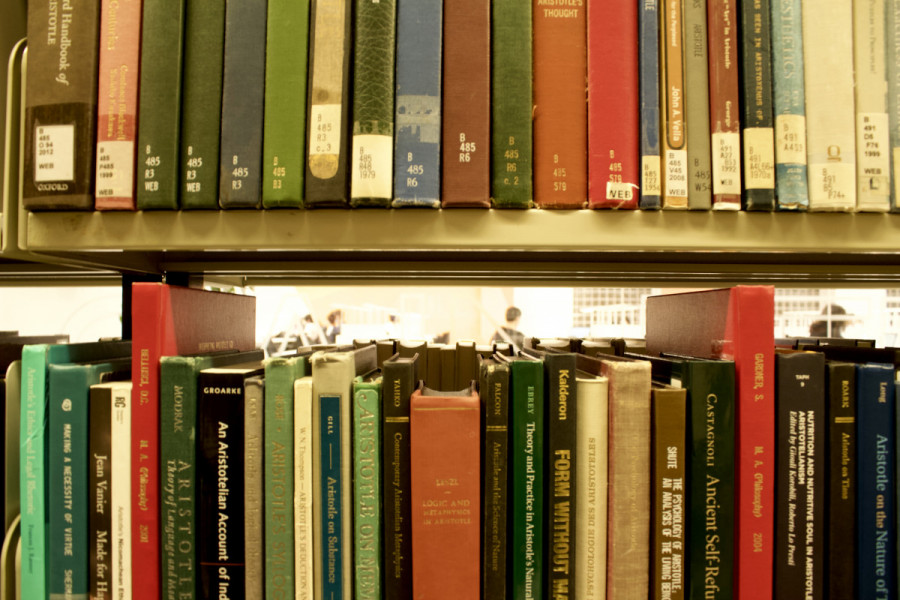The silence of the books
University libraries provide shelter for both ageless books and students’ anxieties
Libraries have a unique energy to them.
They act as a sanctuary for books and for anxious students like myself. I am lucky enough to say that my mom introduced me to books and their imaginary universes when I was just a kid, by reading me stories of her own liking every night. Libraries were the only logical place for me to escape reality when I needed to.
Books have a calming knowledge to them that only helps me when it comes to studying. Surrounded by the heaviness of bookshelves stuffed with a myriad of books older than myself, studying feels slightly less demanding.
I always assumed I could access the magical spaces that are libraries without any constraints. That is, until the pandemic hit us.
When the first quarantine was announced, my heart broke as I realized libraries were to be closed until further notice. I had taken up a routine where I would spend most of my time at the library, finding comfort in the silence of the books. Even the dusty smell and dry air of the Webster library helped to calm my nerves when I was stressing about an upcoming exam.
You never know what you’ve got until it’s gone, as they say.
When the semester was announced to be in-person again, the Hermione Granger in me bolted in excitement and anticipation. As soon as classes resumed, I returned to my old habits and made the library my second home once again. Not only did my motivation to study come back—I was fully drained of any resolve to study during the pandemic, yet I somehow managed to remain in school—but my grades also went up.
Being in a space with other students also helps to alleviate the stress. Ultimately, students go to the library to study. I realized being around other people with the same goal keeps me accountable in my studying. I feel guilty when I scroll too much on social networks, instead of watching class lectures, or when I occupy a table for too long to simply watch some YouTube videos. If my neighbour actively reviews his calculus notes, why can’t I do the same for my biology class? Peer pressure can be beneficial for once.
The scratching of pencil on paper, the sounds of fingertips frantically typing on a laptop, and the whispers of students desperately trying to finish their assignments on time are eerily soothing to my ears.
Trying to crunch a month’s worth of classes in one night is easier to accept, when I know I am not the only one under pressure. After spending two semesters and a half in a badly lit room—with only my laptop screen and my anxiety to keep me company— dedicating countless sleepless nights under the neon lights of the Webster library along with a bunch of other students lightens my burden.
I don’t know if it’s the excitement of seeing my classmates in real life instead of a shrunken version of their faces on a Zoom screen, but I do know that I’ve never been so grateful to be at the library.
Being alone in a room full of people has never felt so good.


_600_832_s.png)




_600_375_90_s_c1.jpg)